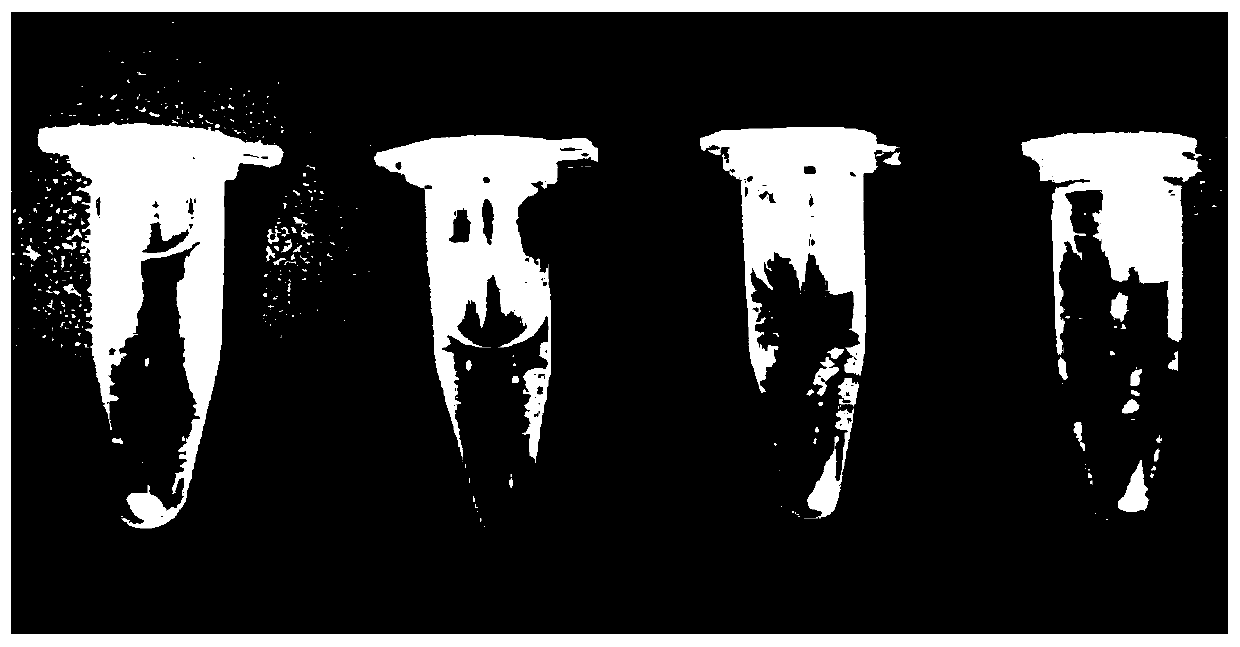Preparing method of light-degraded organic poisonous gas multi-stage nanometer composite
A nano-composite material, toxic gas technology, applied in separation methods, chemical instruments and methods, dispersed particle separation, etc., can solve the problem of improving photocatalytic degradation of organic toxic gases, without increasing the enrichment of harmful gases, and limited improvement in the absorption range. and other problems, to achieve the effect of improved photodegradation efficiency, high energy utilization rate, and uniform void distribution.
- Summary
- Abstract
- Description
- Claims
- Application Information
AI Technical Summary
Problems solved by technology
Method used
Image
Examples
Embodiment 1
[0026] 10Kg of montmorillonite was pulverized by mechanical pulverization, the pulverization condition was 800rpm pulverization for 45min, and then pulverized once by airflow method, the pulverization pressure was 1.0MPa, and the gas flow rate was 3m 3 / min, the crushing efficiency is 20Kg / h, and the measured particle size is 180nm. Weigh 4g of titanium tetrachloride and add it to the processed 50g porous montmorillonite. The operating conditions are to add gradually and operate in a low temperature box. The operating temperature is 3 ℃, to obtain the complex, take 10g of the complex and add it to 100ml deionized water for low-temperature hydrolysis reaction. Reaction, reacted for 6 hours, and then added 1.5 g of triethanolamine after cooling down to normal temperature and stirred evenly to obtain a nanocomposite material.
[0027] Test: Take 0.1ml of the solution and add it to 10ml of formaldehyde solution, react under visible light for 0.5h, and the degradation rate of forma...
Embodiment 2
[0030] 10Kg of montmorillonite was pulverized by mechanical pulverization, the pulverization condition was 800rpm pulverization for 45min, and then pulverized once by airflow method, the pulverization pressure was 1.0MPa, and the gas flow rate was 3m 3 / min, the crushing efficiency is 20Kg / h, and the measured particle size is 180nm. Weigh 4g of titanium tetrachloride and add it to the processed 50g porous montmorillonite. The operating conditions are to add gradually and operate in a low temperature box. The operating temperature is 3 ℃, to obtain the complex, take 10g of the complex and add it to 100ml deionized water for low-temperature hydrolysis reaction. React, react for 6 hours, and then add 1.5 g of glycerol after cooling down to normal temperature and stir evenly to obtain a nanocomposite material.
[0031] Test: Take 0.1ml of the solution and add it to 10ml of formaldehyde solution, react under visible light for 0.5h, and the degradation rate of formaldehyde reaches 8...
Embodiment 3
[0033] 10Kg of montmorillonite was pulverized by mechanical pulverization, the pulverization condition was 800rpm pulverization for 45min, and then pulverized once by airflow method, the pulverization pressure was 1.0MPa, and the gas flow rate was 3m 3 / min, the crushing efficiency is 20Kg / h, and the measured particle size is 180nm. Weigh 4g of titanium tetrachloride and add it to the processed 50g porous montmorillonite. The operating conditions are to add gradually and operate in a low temperature box. The operating temperature is 3 ℃, to obtain the complex, take 10 g of the complex and add it to 100 ml of deionized water for low-temperature hydrolysis reaction, the reaction time is 30 min, the reaction temperature is 3 ° C, after the reaction, add 0.5 g of tris-diaminoethylamine with a particle size of 5 nm, React at 160° C. for 6 hours, then add 1.5 g of triethanolamine after cooling down to room temperature and stir evenly to obtain a nanocomposite material.
[0034] Test...
PUM
| Property | Measurement | Unit |
|---|---|---|
| particle size | aaaaa | aaaaa |
| particle size | aaaaa | aaaaa |
Abstract
Description
Claims
Application Information
 Login to View More
Login to View More - R&D
- Intellectual Property
- Life Sciences
- Materials
- Tech Scout
- Unparalleled Data Quality
- Higher Quality Content
- 60% Fewer Hallucinations
Browse by: Latest US Patents, China's latest patents, Technical Efficacy Thesaurus, Application Domain, Technology Topic, Popular Technical Reports.
© 2025 PatSnap. All rights reserved.Legal|Privacy policy|Modern Slavery Act Transparency Statement|Sitemap|About US| Contact US: help@patsnap.com

